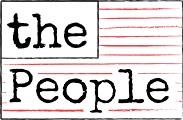Civics U: The Logical Order of the First Amendment
“Congress shall make no law respecting an establishment of religion, or prohibiting the free exercise thereof; or abridging the freedom of speech, or of the press; or the right of the people peaceably to assemble, and to petition the Government for a redress of grievances.”
Many people can probably recite by memory some, if not all, of this first amendment to the constitution. It is so foundational that it would be ideal and productive for all students, all American citizens, and even people of all countries to have these principles memorized and in their thoughts.
The elements – rights of religion, speech and press, assembly, and petition – are each vital and necessary to a free society, and each one needs to be understood. But understanding their order – their sequence – is also important. The order is not random; rather, it is natural and logical. This may be obvious, but it bears review.
What a person speaks or writes will come from what they think and believe. The first right – even the first responsibility – is to believe, to form one’s own worldview and thoughts, and to then act and speak according to one’s understandings and one’s conscience.
It follows, then, that people have the right to express their beliefs, views, and thoughts in speaking and in writing. They are not to fear punishments or reprisals for expressing their ideas.
People can then speak and share their views, not only individually, but as they gather in groups and form organizations. And likewise, individually or in groups, they are to be free to communicate their desires, whether proposals or complaints, to their government(s) without fear of reprisal or limitations being imposed by Congress.
These first amendment rights may be so familiar that they are easily taken for granted. They may become more meaningful when one examines practices of various countries around the world. For example, China persecutes both Christians and Muslims and prohibits pro-democracy demonstrations; Christians are persecuted (jailed and killed) for their beliefs in several countries in Africa, the Middle East, and Southeast Asia; Russia has acted against citizens and its press when they have protested and spoken out against the government’s invasion of Ukraine; and persecution of the Rohingya Muslims and of Christians by Buddhists and by the government continues in Myanmar. In fact, full freedom of religion and speech is often the exception rather than the rule in the world, and members of practically every religion, major or minor, national or tribal, have experienced some kind of persecution, or at least prohibition or opposition at some time in history.
But are there limits? Can rights and freedoms be misused? Clearly, there are instances where persons have used their rights irresponsibly to the detriment of other persons and society, and have encroached on the same rights of others. The old adage that “freedom of speech does not include the right to yell ‘Fire!” in a crowded theatre” still applies.
In the current day, there are concerns about people’s freedom to express and follow opposing beliefs being unduly sanctioned and shut down by opponents or by government. There are not only historic divisions and oppositions between those who hold different religious views, but there can also be opposition between those who hold to religious views and those who do not subscribe to any religion. One question is whether or how fundamentally different world views can co-exist, and if or how their adherents can work together.
In the meantime, we have the right and freedom both to collaborate and to disagree. This does not mean that there is no such thing as truth, or right and wrong, or good and bad decisions, but it means that we at least have the right and freedom to pursue and to debate these things. And amidst the polarization that continues in our society, there remains a need for the people to express and explain their views and goals freely and civilly to maintain an open and free society.

